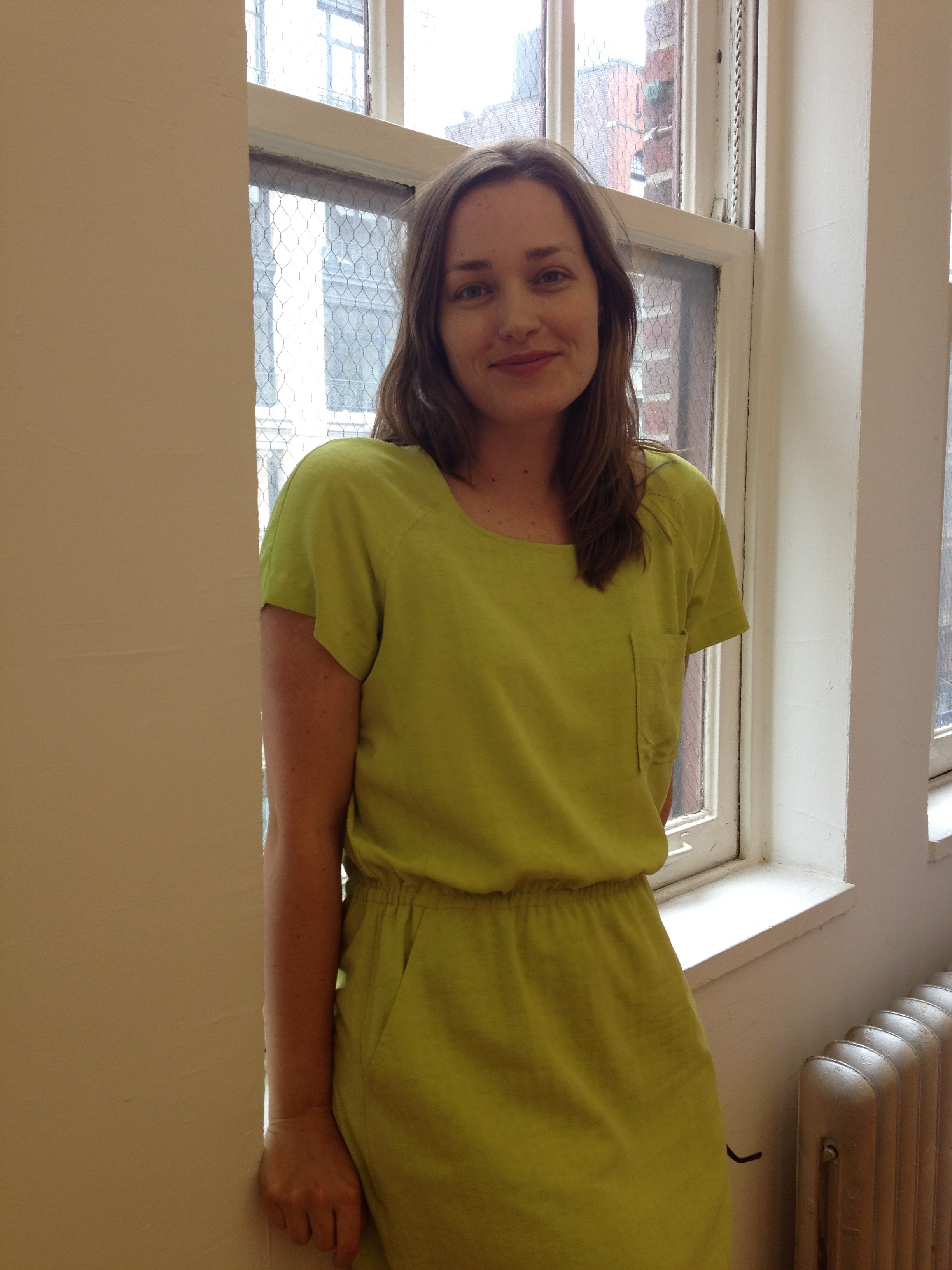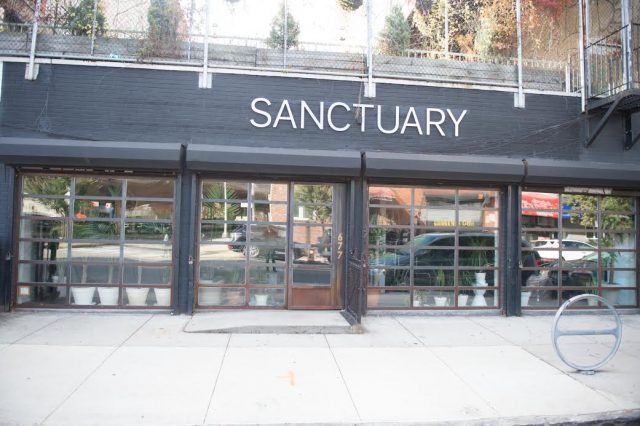
Welcome to the first in our “Ask a Headhunter” interview series, in which we grill recruiters on what it takes to get a real job. Today’s expert is Brooklyn’s own Kristy Hurt, a luxury fashion and retail specialist whose clients include Alexander Wang, Loeffler Randall, Miu Miu and Prada, among others. We asked her to identify entry-level opportunities as well the best longterm gigs other than completing a series of unpaid internships until you’re ready to retire or opening an organic handbag storefront in Bushwick that shutters two short months later, after lots of great parties but only three sales.
Hurt’s focus is on the higher end of things. Before launching her own consulting company in 2009, she spent five years managing various human resources functions for LVMH Group, which includes brands such as Louis Vuitton, Fendi, Marc Jacobs, Dior, Thomas Pink, Celine, Givenchy and Emilio Pucci. The good news: there are plenty of jobs of all kinds. The bad news? Not only does your LinkedIn profile actually matter, but you have to dress the part in your Facebook pics too—HR people are looking.
Let’s start at the top: how hard is it to break into fashion?
From my perspective, not that hard. There are so many brands and often they need many designers. If you have good training and education, maybe from a school like Parsons, and some solid internship experience at good companies, you are all set to start your career as an assistant designer somewhere.
Can you give some examples of starting as well as executive salaries?
Take this with a huge grain of salt as there is a lot of variation from company to company, but assistant level is typically in the 30-40k range, manager level with 5-8 years experience can be 60-100k, Director level with minimum 10-12 years experience is usually $120-160k and VPs with 15+ years experience start at around $175k and can go up from there. This is consistent across functional areas. You can have just as high a salary as SVP of HR as you can being SVP of Design or Production.
Where do you predict the big jobs are going to be in 10 years?
Social media and “community management” as they are calling it is a new functional area being developed over the last several years. Traditional marketing and PR are evolving the fastest right now, but I don’t see there ever being a time when we don’t need the basics: design, product development, production, merchandising, sales, retail management, etc. However, digital marketing is becoming a huge opportunity.
Which aspects of fashion and retail offer the greatest opportunity for career growth?
Honestly, take your pick. The best advice is to pick something and stick with it. It’s also important to stay true to the type of brand you want to work for. For example, if Alexander Wang is your dream company, target other brands they might admire like Proenza Schouler, Derek Lam, Rag & Bone, 3.1 Philip Lim, etc. They all want to hire from within their own aesthetic so if you can’t get a job at Wang or the timing isn’t right, try the others next. It can be hard to make the transition from a very different kind of brand. But trust me, they are always hiring.
Is it possible to leverage a retail job into a fashion career?
Absolutely. Fashion IS retail. People tend to forget that. You can have a very rewarding and high paying career in retail. I started in the stores and was a store manager and regional manager of Stores and eventually moved into corporate HR and then started my own search firm and HR consulting company. Retail is a great place to start. It’s also a great place to stay and work all the way up to president of retail for a brand. Why not?
What is the biggest mistake that young people make when it comes to starting out in this field?
It’s important to make sure all your social media outlets are professional and reflect your sense of style. This is fashion after all, and brands want to hire people who “look the brand.” This can be very different if you are working for Prada vs J.Crew. I always tell people they should take inspiration from the ad campaigns when dressing for an interview. But don’t take that literally. Keep it professional, although you don’t have to wear a suit. In fact, you shouldn’t. These brands expect you to understand and be able to translate their brand DNA into your personal professional image. Also, recruiters’ number one tool is LinkedIn, so job seekers should be sure they have an excellent LinkedIn profile with picture. Don’t just crop your boyfriend out of it and think it will do. And make sure all your searchable Facebook pictures look good! It’s amazing how much comes up in Google search when you type in a candidate’s name. And don’t think recruiters aren’t looking. They want someone who lives and breathes their brand.
What’s your best advice to someone who wants to be the next Michael Kors?
Work hard, intern for brands you love, and get experience working for great companies for many years before going out on your own. I think 10 years in the corporate world is always a good plan before trying your own thing. Once you have established yourself as a professional, you can always go back to working for someone else if it doesn’t work out.
How do you get a job as a footwear or handbag designer?
If you want to start a career as a designer, stop everything and go to a great design school. Parsons is an excellent one in New York City. Even if you studied something other than design at a 4 year University, you can go back and take classes at Parsons, or enroll in one of their degree programs. Often these programs allow you to intern and even may require it for credit, and it’s a great opportunity to start gaining hands on experience as a design intern for a great company. From there, you can build on that with more internships and then eventually an assistant design position at a fashion company. Just make sure your internship is with a company you would love to work for eventually, because the best way to get a job is through referrals and recommendations. If you are a great intern, and you have talent, they might even hire you after graduation. Plus, all the people you work with will move on to competitors and before you know it, you have a large network of industry insiders. Those are the people you need to impress! Most people who get “entry level” jobs already have many internships under their belts. I see entry level candidates with 3, 4, even 5 internships already on their resumes.
Being a retail buyer sounds like a dream job for people who love to shop. How do you get those jobs, and how much do they pay? And is it possible that being a buyer is not as fun as it sounds?
Buying is still a great career choice from my perspective, although it’s very different than shopping. Most of the decisions buyers make are based on numbers, historical data, and budgets. Some people don’t realize how much analytical work is involved in being a buyer. You have to be an excel wizard and feel comfortable crunching numbers and building spreadsheets all day. Of course you also get to work with product. I have met people who want to get out of buying or planning because it’s too “numbers oriented.” Buying and planning is great for people who have a mix of left brain and right brain orientation, and are very comfortable around the financials. It is still important to have a high taste level, but a lot more goes into being a buyer than just that. Assistant planners and buyers often come from top schools, where they majored in business or economics, and often have internship experience in the discipline. Many buyers go to business school to eventually pursue upper management positions in merchandising, marketing or general management. Buying can be great training for someone with big ambition.
One Response to
Leave a Reply




YOU’RE DUMB! A DEGREE AND AN INTERNSHIP DON’T MAKE IT EASY TO BREAK INTO THE INDUSTRY..